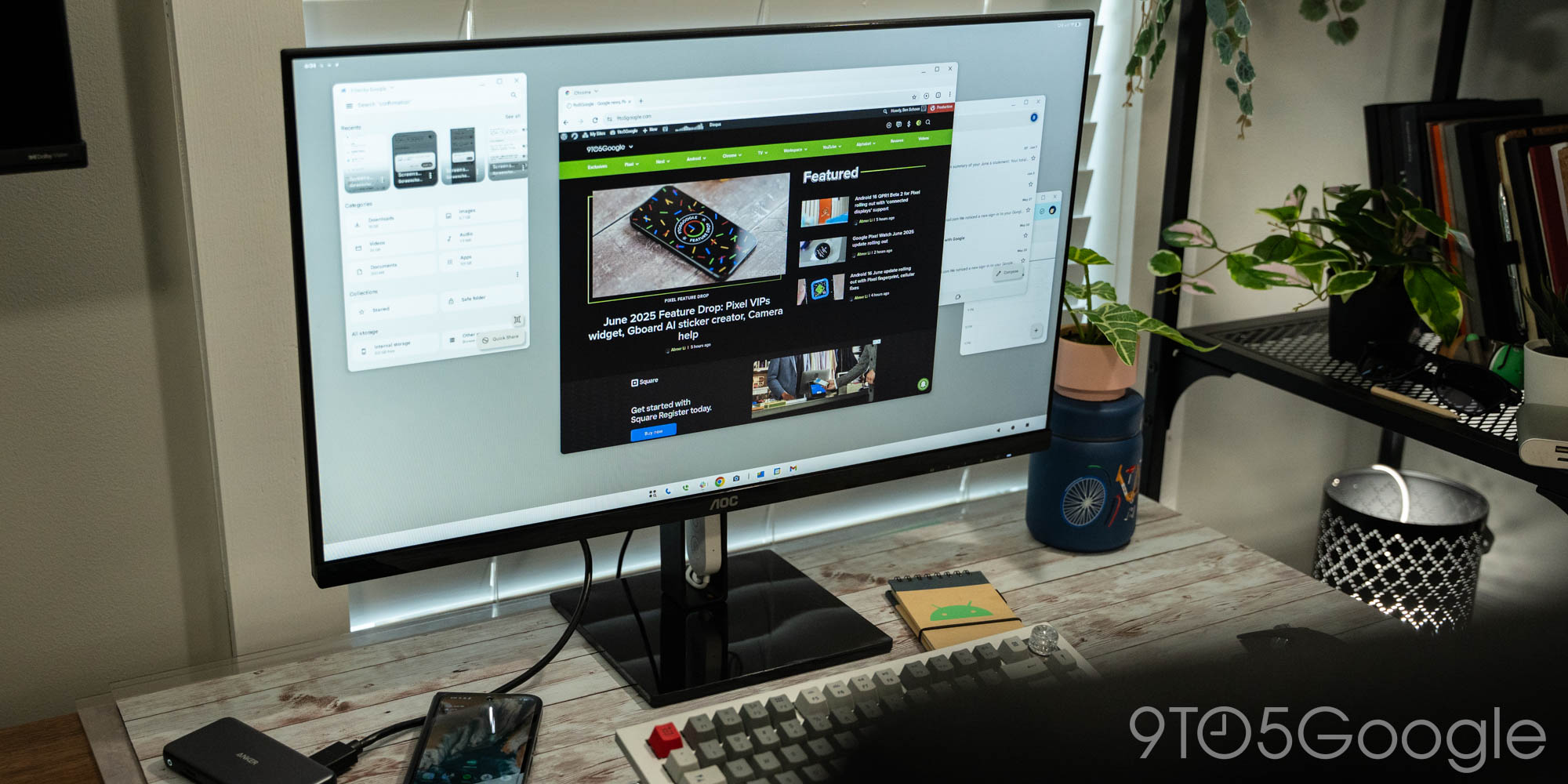
I’d argue that ChromeOS is enough for most people’s personal usage these days given the online services they mainly use and the advancement of web apps. However, I don’t think Chromebooks being third behind Windows and Mac is enough for Google, and that’s why we’re seeing what I’d call “desktop Android” in the near future.
NewGeekGuide has a rebooted newsletter that highlights the biggest Google stories with added commentary and other tidbits. Sign up here!
Desktop windowing, or side-by-side apps with resizable windows, will launch later this year on “compatible tablets running Android 16.” Google frames this as helping boost the multitasking experience.
At I/O 2025, Google announced connected displays as a way to “attach an external display to their Android device and transform a small screen device into a powerful tool with a large screen.” It’s currently in developer preview with Android 16 QPR1 Beta 2.
This evolution gives users the ability to move apps beyond a single screen to unlock Android’s full productivity potential on external displays.

These two capabilities combine to make a ChromeOS competitor. I believe Google wants to leverage Android’s lead in mobile to compete with Windows and Mac.
Where ChromeOS fits into that is unclear. So far, Google is plugging away with Chromebooks and its Plus initiative to expand into the middle of the laptop market. It’s a good idea and Chromebook Plus devices are solid with elevated hardware specs and AI-backed software features. The latest round adds a Circle to Search-like capability that will be familiar to any Android user.

However, one disappointment today is that there’s no integrated Gemini and Gemini Live on ChromeOS. When Google launched it for Chrome on Mac and Windows at I/O, there was nothing about Chromebooks. I was hoping Google was just saving that launch for this moment and it would be ready by now, but it’s not. Being able to navigate the web and control a Chromebook with Gemini Live is an exciting prospect.
Another consideration is where Google’s engineering efforts are being focused on. The clear answer is Android, with the work of “rebuilding the operating system with AI at the core” starting on XR. All that work can be carried over to a desktop OS, with an always-on Gemini/Project Astra experience being incredibly interesting from a user interface and experience standpoint. It has the makings of a next-generation operating system that Apple has yet to deliver and Microsoft squandered with the fiasco that is the Recall launch.
Last year, we learned that ChromeOS would be using more Android under-the-hood going forward. It’s unclear what that end user experience looks like, and Google has made no further announcements.
Until then, it seems desktop Android and ChromeOS are on a collision course. I don’t think Google can or will “kill” Chromebooks. It might not be enough to win in the personal market, but it’s too popular in the education and enterprise market. The reputational damage would be too great.
Meanwhile, ChromeOS is in a very good and mature place. Personally, I’d pick a Chromebook over the desktop Android experience we currently have on the Pixel Tablet because it provides a more native, if not conventional, desktop experience and has a better desktop-class browser.
As such, it very much looks like we’re on track for Google to have two similar desktop operating system efforts.
I don’t see a clear difference. If I have to speculate, it might come down to form factor. Chromebooks could remain for education and business. Some ChromeOS devices would remain for personal usage, but Google would primarily be trying to capture that market with 2-in-1s that are basically tablets with included keyboards. Maybe the upcoming “DeX” capability is meant to let phone users try and experience desktop Android with the hope that people graduate to a dedicated device.
FTC: We use income earning auto affiliate links. More.








Comments